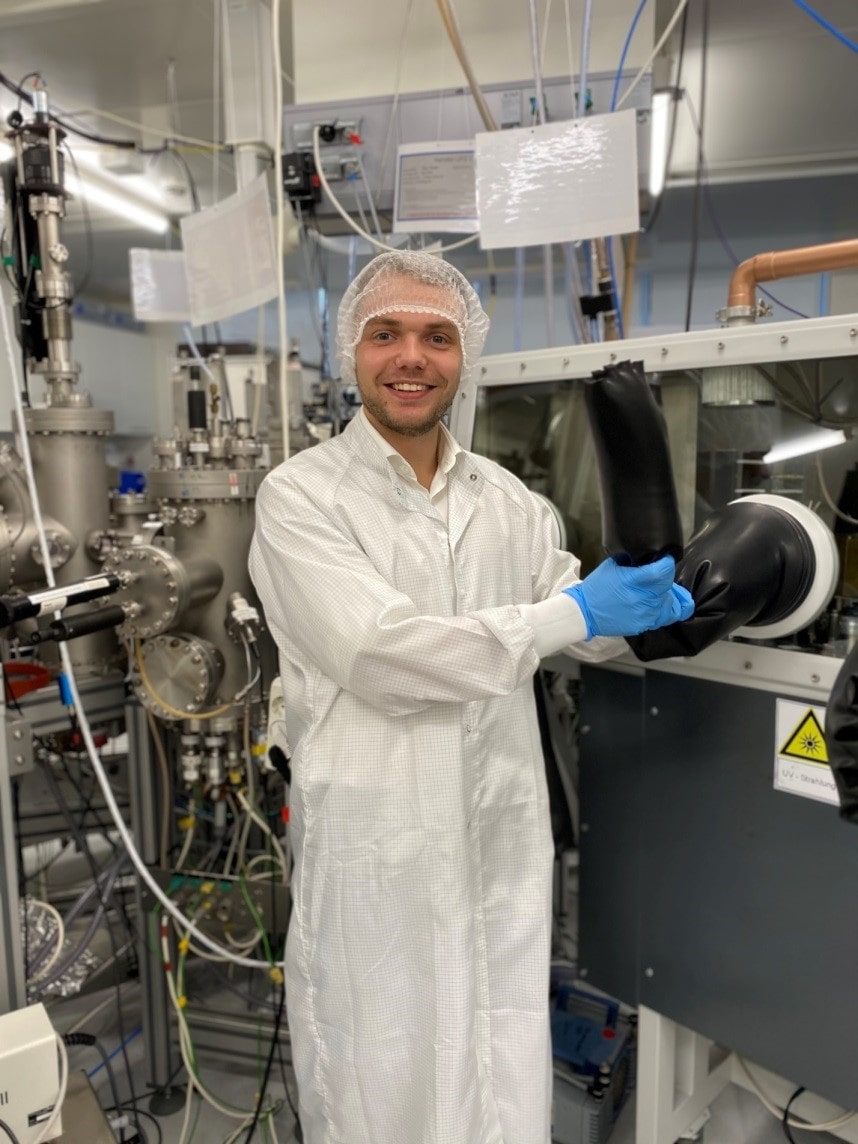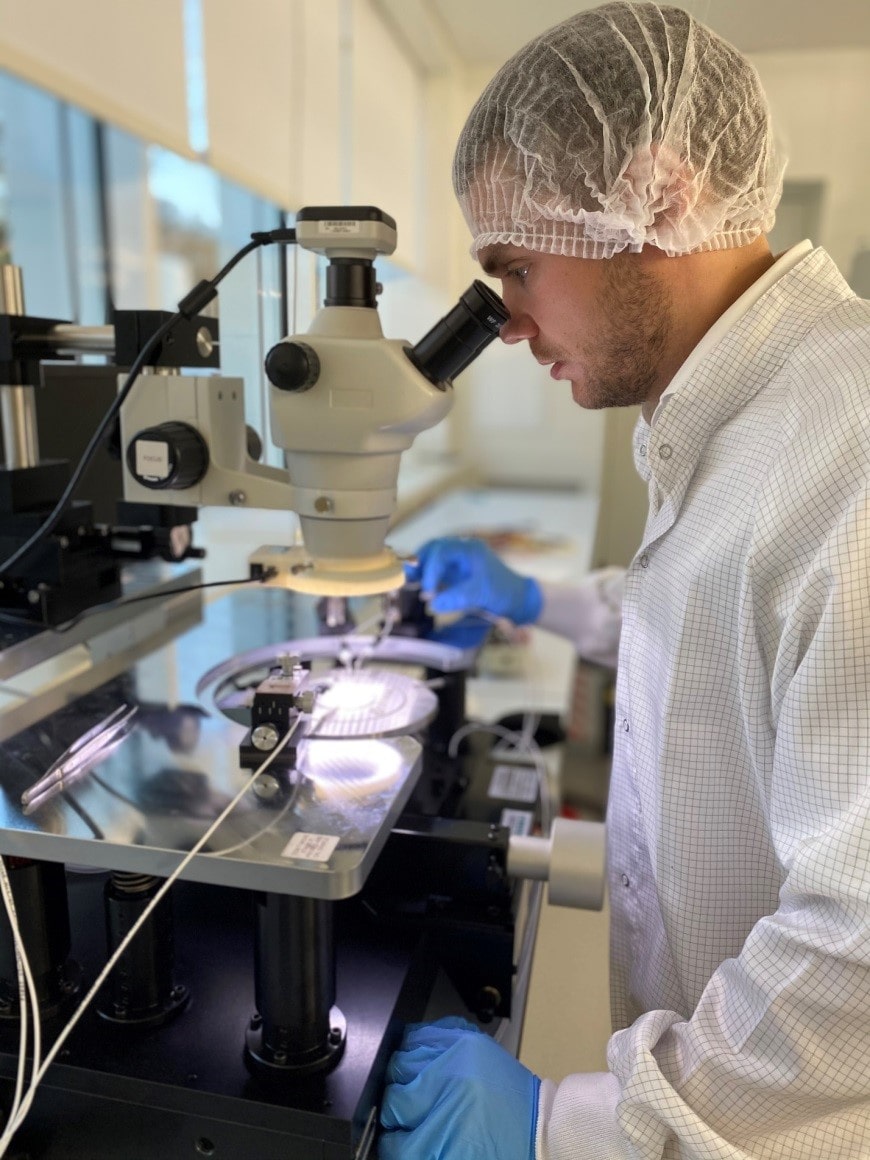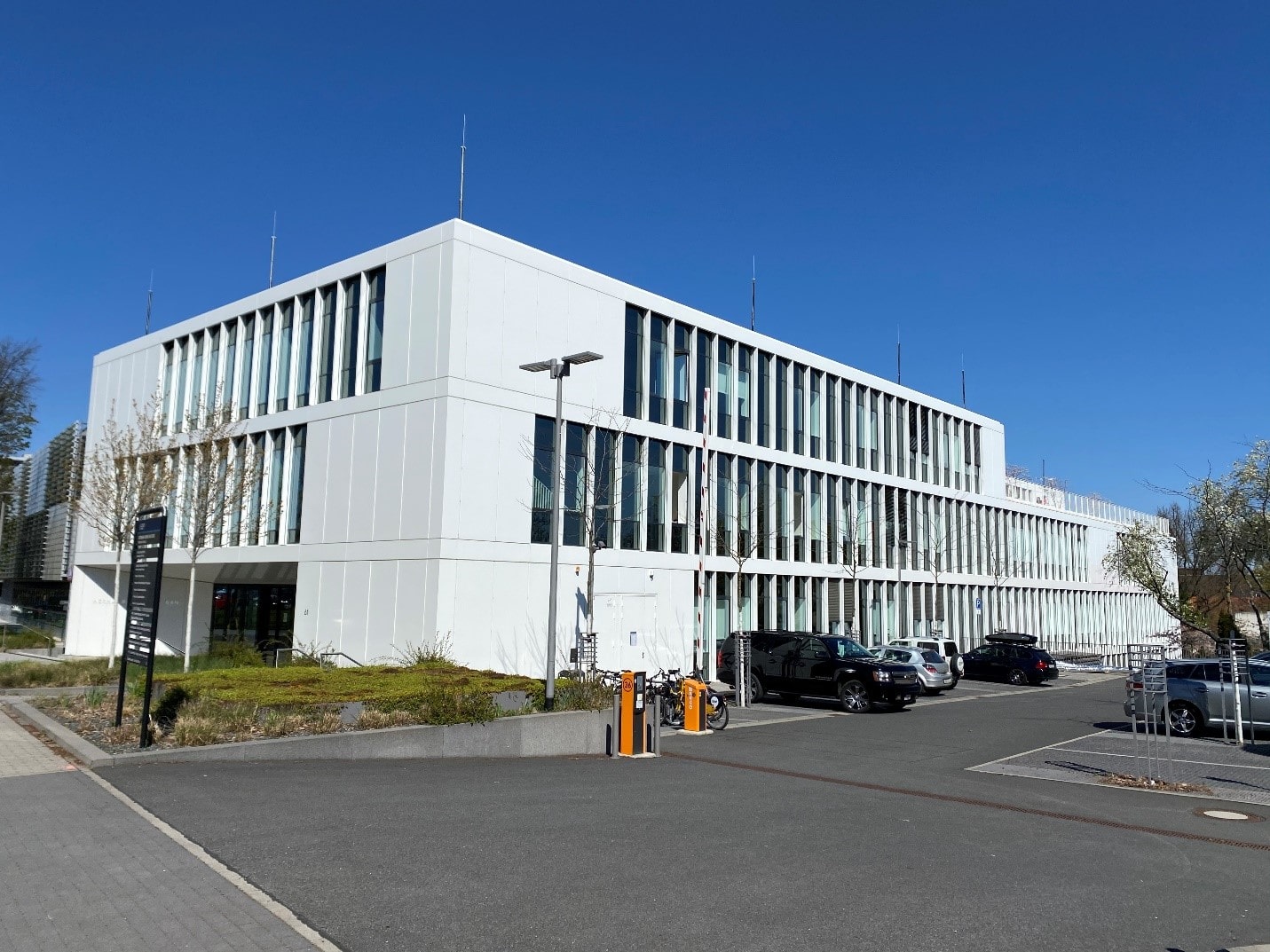Postgraduate of the Institute
of Thermal and Nuclear Power Engineering (ITNPE) Ilya Lashkov speaks on his education in Dresden University of
Technology and shares his impressions on receiving the Ph.D. degree.
Studying as a postgraduate in Germany lasts from 4 to 5 years, depending
on the sphere of activity. I deal with the organic and molecular
microelectronics, mainly develop and test organic field transistors that use
organic polycrystalline semiconductors. Approximately, the first 2 years of the
Ph.D. course were dedicated to data acquisition and the remaining time - to
writing of the articles and the thesis.

Glovebox with thermal
deposition unit
The quantity and the quality of scientific articles are all markers of
success of a postgraduate research work. But they are insufficient to receive
the Ph.D. degree. To obtain the degree it is essential to write a thesis. On
average it consists of 150-250 pages that are 30% theory, 20% methodics and 50%
results of the scientific research.
Apart from that, you have to pass two examinations in the fields that
differ from your major, and also in subjects that you have never had. In my
case, the unfamiliar subject was the Quantum Theory, which I barely knew, but
the Dean of the faculty said that a high-class physicist should be an expert in
any branch of Physics and in Quantum as well.
In course of postgraduate studies in Germany, a student carries out the
following:
1) conducts his own scientific research, following some advice of the
scientific supervisor;
2) takes the responsibility of certain equipment maintenance and presentation;
3) acts as an advisor to Master course students, helping them to conduct
his scientific research and to write their Master theses;
4) conducts the practice sessions for Bachelor course students;
5) makes reports at international conferences.
The atmosphere at the University is very friendly and free from rigid
hierarchy. Everyone communicates frankly and helps others. A professor and a
leader of a group does not deny going hiking with postgraduates, having dinner
with them or chilling out together. All of this contributes to the synergy
inside the group, to faster development, getting free from shyness and sharing
ideas.

Installation with a
microscope for measuring the conductivity of organic films
The basic goal of a scientific thesis is
to discover and develop something unknown, so often the postgraduate is the
only person who realizes what he is doing in his work, and sometimes the person
who realizes it after the work has been done. Even the supervisor sometimes
doesn’t know all the details of the thesis, but he always can help to move in
the right direction.
It is harder to get a scientific degree year to year. So, the obvious
question arises: what makes it worth it?
First, the Ph.D. degree is the basis of the scientific career at the University;
Second, the probability to find a god job in Germany increases if you have a
Ph.D. degree;
Third, according to my experience, most Heads of technical departments have a
Ph.D. degree;
Finally, this degree gives you an income of 1300-2000 Euro, so you can fully
dive into scientific research and not be distracted by the search for a salary.
To get the admission as a postgraduate I had to send my C.V., and after
that I was invited to an online conversation, and then, assuming that my skills
and education received at MPEI were enough for my supervisor, we signed a
contract to study for the Ph.D. degree for 3 years.
Study and internship at foreign universities give an incredible
experience of communication in different circumstances of cultures and points
of view, and new skills for science and practice activities.
In my previous reports I have already spoken about my first internship
at Dresden University of Technology and possible
conditions and financement of studying in Germany.
To crown the speech, I express immense gratitude to the MPEI Department
of Foreign Relations headed by Elena Gulicheva for informing me of possible
scholarship programs, consultation in collecting the documents and giving me
the opportunity to do an internship.

Institute of Applied Physics and Photonics IAPP, TU Dresden